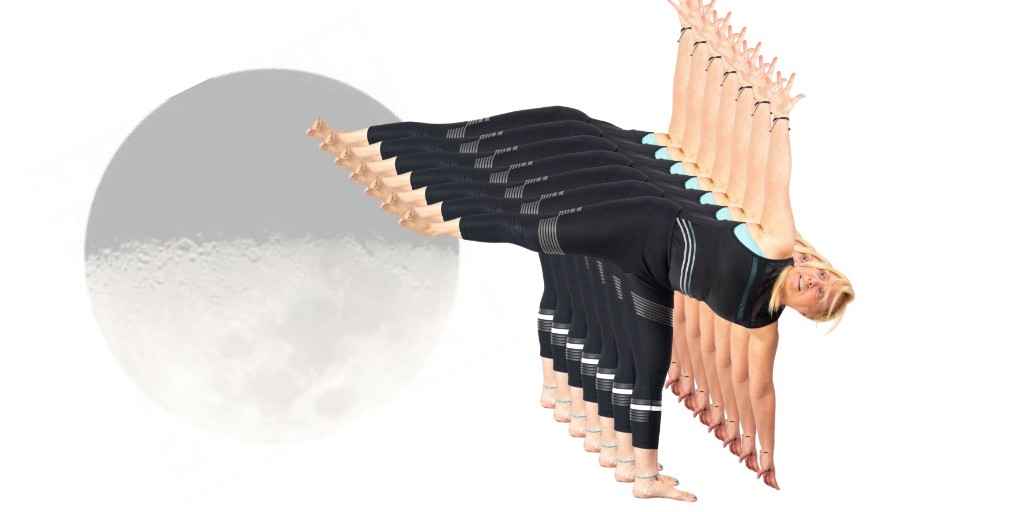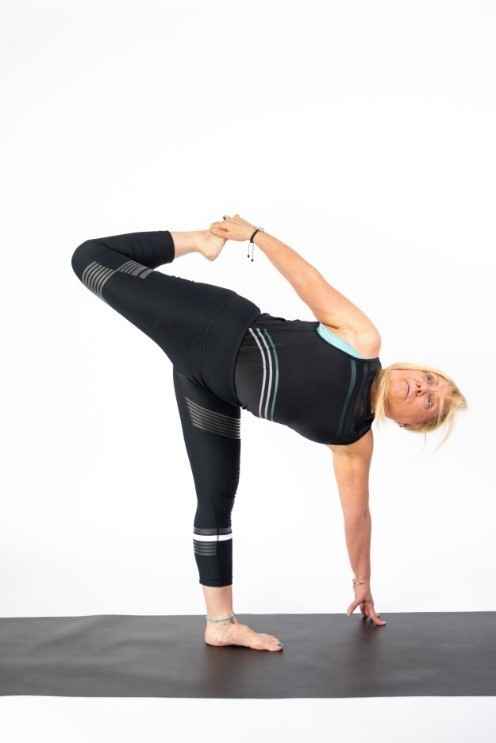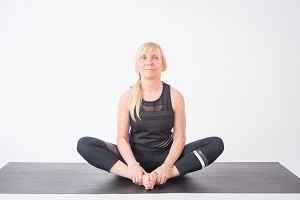Join our Mailing list!
Get all latest news, exclusive deals and academy updates.
This site uses cookies for analytics and to improve your experience. By clicking Accept, you consent to our use of cookies. Learn more in our privacy policy.

Share:
‘Ardha’ = ‘Half’, ‘Chandra’ = ‘Moon’ or ‘Luminous’, and ‘Asana‘ = ‘posture’

Benefits
Aligns shoulders
Excellent for the joints and muscles in the spine
Removes fatigue if done against a wall
Deep stretch to the legs and shoulders
Improves alignment
Improves balance
Opens hips, chest, and heart
Builds core strength
Therapeutic for various ailments
Tones the abdominal muscles
Chakras
Heart Chakra (Anahata Chakra)
Sacral Chakra (Swadisthana Chakra)
Root Chakra (Muladhara Chakra)
BLOCK
As illustrated the use of a block works very well for this asana.
Steps
1. Stand in Mountain Pose (Tadasana) with the wooden or regular block on your right side or not block.
2. Now, spread your right leg forward 1 ½ or 2 feet. Bend your right knee and place your right hand on the block (or floor). Bring your weight on the right foot place your left hand at the hip and stack your right shoulder over your right hand. Pause to get your balance.
3. Now, lift and extend your left leg and bring your left arm up. At this time your left arm should be stretched towards the ceiling such that it is in line with the right arm.
4. Now, while keeping the palm of your hand on the block, straighten your right knee. Turn your neck towards the ceiling to gaze at your left thumb. Keep your right foot, thigh, and hip aligned. You should balance on your right leg and not on your right arm. The right arm rests on the block for support.
5. Hold the pose as long as comfortable and then return step by step. To keep it simple, bend your right knee to bring your raised left leg to the ground comfortably.
VariationS
VARIATION ONE
Also Named Sugarcane
‘Ardha‘ means ‘half’, ‘asana’ = ‘pose’, ‘Chandra‘ = ‘moon’, and ‘Chapa‘ = ‘bow’ and ‘asana’ = ‘pose’
It is an intermediate to advanced balancing asana.
Included in hip opening yoga sequences, the muscles of the gluteus, hip flexors, hamstrings, shoulders, and psoas are engaged, to support the body to remain in balance while opening the trunk sideways.
Half Moon Bow Pose

Steps
1. From Half Moon, to go into this variation, bending the knee and attaching with the hand.
2. Stay for about 3-5 breaths. Release and come to relax in Tadasana.
Chakras
Solar Plexus (manipura)
A great way to improve balance, awareness, and strength, preparing the body for a longer duration for Dancer – Natarajasana.
VARIATION TWO
‘Parivrtta‘ meaning ‘Revolved’, ‘Ardha’ = ‘Half’, ‘Chandra’ = ‘Moon’ or ‘Luminous’, ‘Asana’ = ‘pose’
Revolved Half Moon Pose is a standing yoga pose that combines the challenge of balancing with the detoxifying benefits of a twist.

1. From Half Moon, squaring hips and shoulders, bring the right arm down and place the right palm on the floor (or block), bending the body forward and placing it just below the shoulders.
2. As you exhale, balance the body on the left foot and right arm on the floor. Inhale and raise the left arm above your head and shoulders and gaze at the left palm by twisting at the obliques and the shoulders.
3. Though the asana primarily is to do with balance, the arms and shoulder muscles are put to work. Once you have mastered the art of balancing in this pose take the energy to the shoulders by taking the shoulders into a deeper twist.
4. Stay on for about 5-7 breaths taking the twist deeper.
Need Help? Contact Us
Browsing history
Master Trainer
Nancy M.Sc, ERYT-500

I love connecting with great yogis. Being inspired by the teachings of renowned yogis, my passion for sharing the teachings of ancient science within modern practice is absolutely stunning.
Other Posts